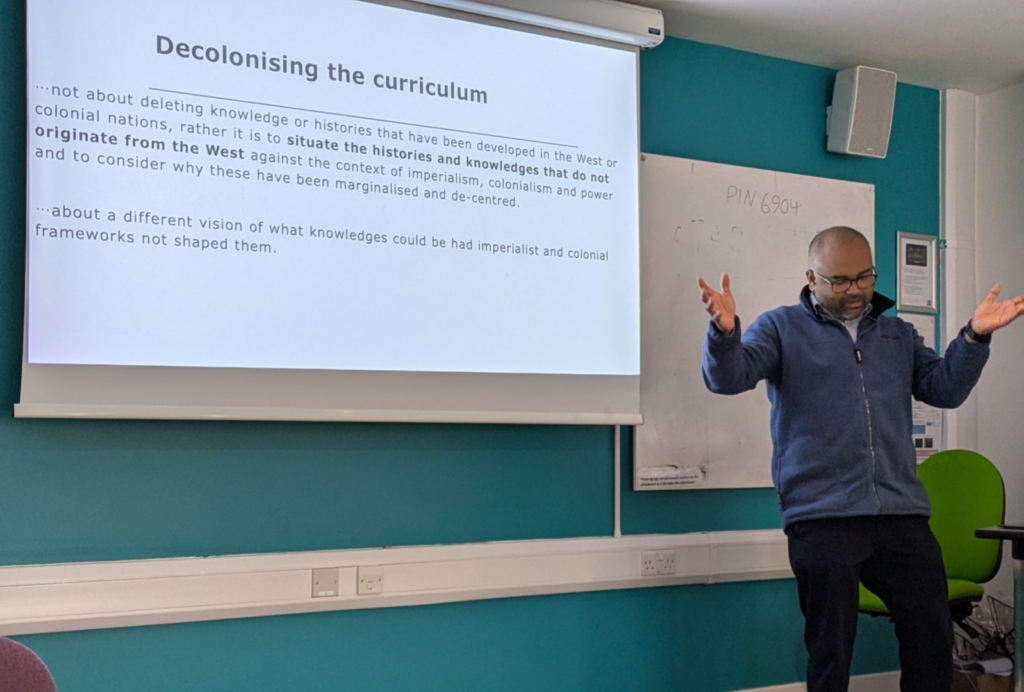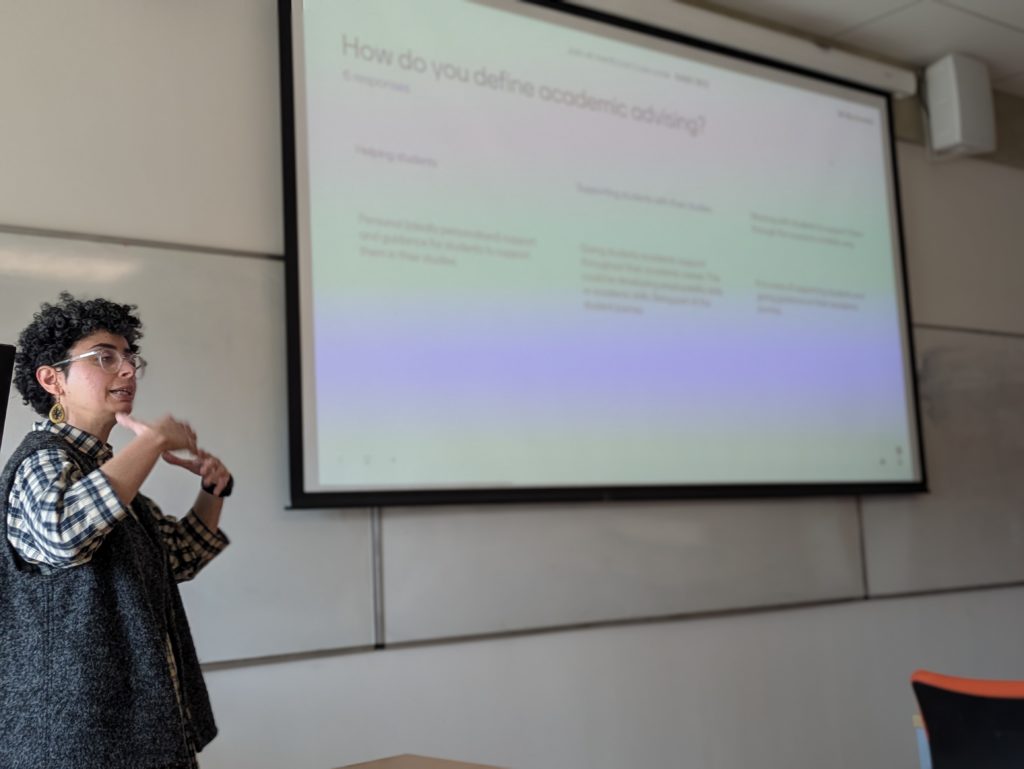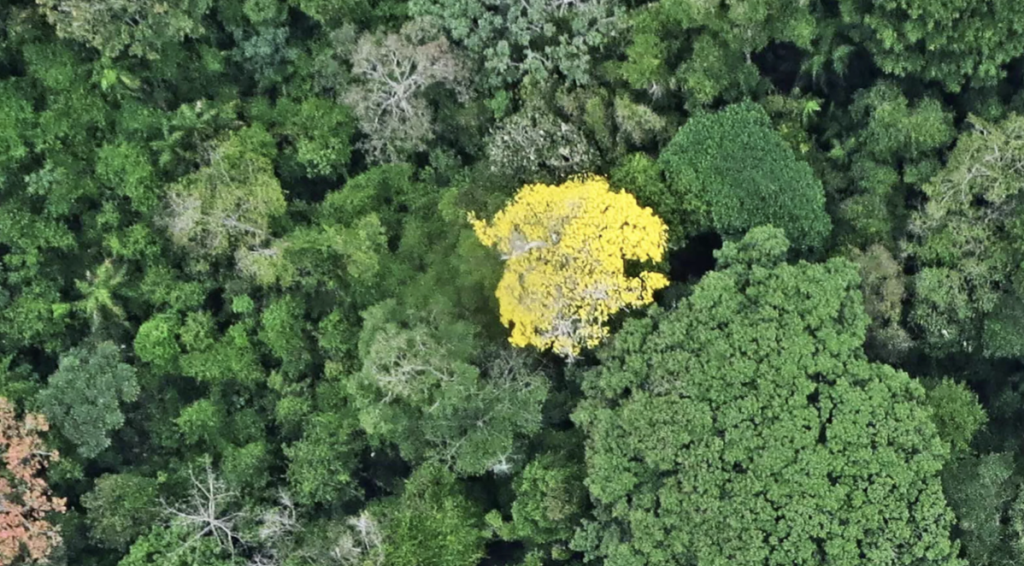Workshops: Embedding Inclusive and Decolonial Practices in Biosciences Curricula (Professor Zahid Pranjol) and The Co-Creation Approach to Academic Advising (Dr Hadir Elshafie)
As Inclusivity Week progressed, Day 4 brought a sharp focus to two essential elements of educational equity: curriculum reform and academic advising. Both sessions invited us to look beneath the surface—at the roots of our knowledge systems and the mindsets that shape student success.
Embedding inclusive and decolonial practices in biosciences curricula
Led by Professor Zahid Pranjol

Professor Zahid Pranjol opened the session by confronting a common misconception: that decolonising the curriculum means erasing or dismissing the past. On the contrary, it’s about enriching education by questioning dominant knowledge systems, uncovering marginalised voices, and situating what we teach within broader histories of colonialism and power.
Decolonising the curriculum, he argued, isn’t simply about ‘adding diversity’ or tweaking reading lists—it’s an interrogation of our ways of knowing. Who is included in the narrative, and who is left out? What have we validated through repeated citation, and what have we neglected through omission?
In the science disciplines, 95% of reading lists are authored by white scholars, and 85% by men. Zahid encouraged participants to:
- Highlight historical biases and their present-day implications
- Embed content from non-Western contexts and voices
- Create inclusive teaching and assessment modes
- Link curricula to employability and student representation
- Acknowledge systemic racism in academia through policy (such as the Race Equity Action Plan)
Examples included recognising the scientific contributions of Black and Indigenous scholars, drawing from the Islamic Golden Age, and exploring co-curricular materials that situate contemporary issues like vaccine inequality and COVID-19 health disparities within a historical framework.
Project-Based Learning (PBL) emerged as a key strategy—one that helps students from diverse backgrounds work collaboratively and critically. And beyond curriculum content, visibility matters: diverse role models in teaching, representation in classroom materials, and celebration of identities across religion, gender, and sexuality all help to foster inclusive learning spaces.
The session challenged attendees not just to ‘diversify’ science but to reconsider how science is taught, understood, and contextualised.
Please see Zahid’s slides and resources.
The co-creation approach to academic advising
Led by Dr Hadir Elshafie

Dr Hadir Elshafie ask participants: how can we support students to develop their authentic voice, rather than a borrowed one?
Drawing on over 300 one-to-one sessions with students in her role as advisor and wellbeing lead in the Law School, Hadir introduced a co-creation model of academic advising rooted in curiosity, action, and personal reflection. Instead of focusing solely on ‘problems’—like improving grammar or mastering structure—this approach asks deeper questions: Why did this reading frustrate you? What does this topic mean to you personally?
Using a tree metaphor, she described the difference between:
- Problem-focused advising: addressing surface-level issues (the branches and leaves), which may bring short-term results but lead to pedagogical dependency
- Person-focused advising: nurturing the roots—student mindset, confidence, and identity—which supports long-term growth and self-sustainability
Academic advising, she reminded us, is not a one-way transaction but a relationship. It’s about listening, asking thoughtful questions, and building trust. Through micro-encounters and structured conversations, advisors can help students build agency, develop critical thinking, and align with the university’s broader sustainability goals.
During the session, Hadir asked participants to look at the photograph of a dense forest canopy, mostly made up of rich green foliage. Among the sea of green trees, one tree stands out prominently in bright yellow, creating a striking contrast. What do you notice? Would you say the yellow tree is the original—the first of its kind—or is it authentic in another sense? This leads us to consider: while each new tree may not be the original, can it be understood as authentic in its own right?

In one-to-one academic support, Hadir recommends prioritising curiosity and authenticity over competition and originality. Authenticity fosters reflective, person-centred conversations that empower students to connect with their values, rather than focusing on external benchmarks of originality and comparison.
Hadir expands upon this approach to academic advising in an article for Wonkhe.
Shared insight: authentic voice as the thread of inclusivity
Across both sessions, the notion of authentic voice emerged as a central thread running through. Whether interrogating whose voices are missing in the biosciences curriculum or guiding students away from generic essay-writing skills and toward genuine personal insight, the message was clear: inclusive teaching begins when we allow students to be themselves.
By questioning the norms of what is taught and how we teach it, and by meeting students with curiosity rather than correction, we can transform the curriculum and student experience.


Leave a Reply